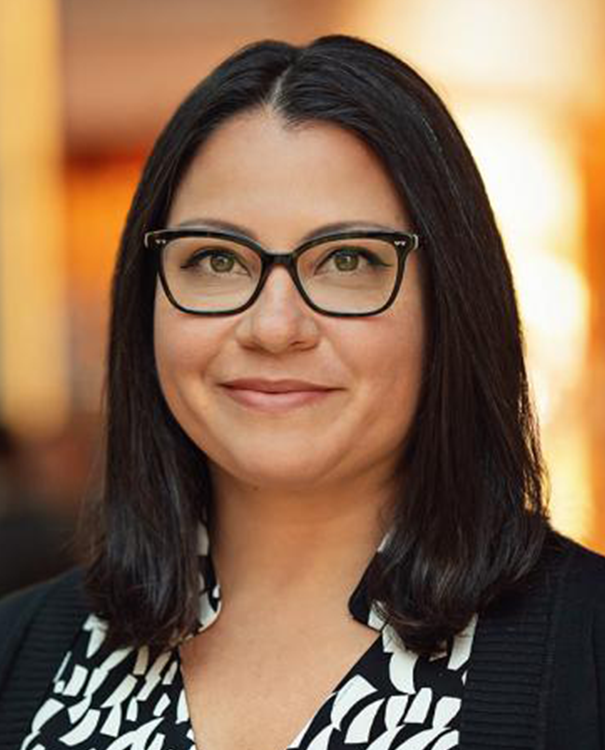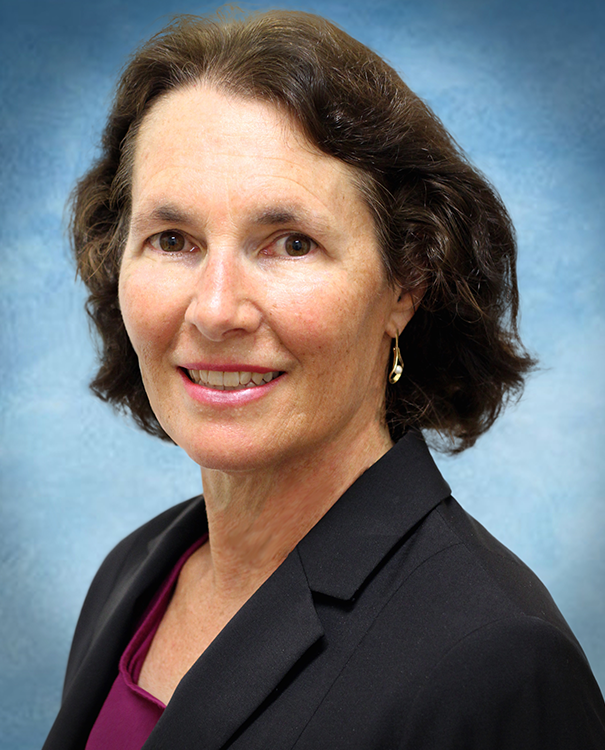Constructing the ‘Other’: Two Complementary Perspectives on Discrimination, Social Exclusion, and Inequalities
It is expected that by 2044, the United States will become a majority-minority society, with Non-Hispanic Whites comprising less than half of the U.S. population. Researchers also estimated that children under the age of 18 would become the majority-minority this year. To help prepare for this transition, the Society for Research in Child Development launched the Child Development in a Diverse Majority Society lecture series in 2018. This webinar marks the third annual lecture in the series and is being held in collaboration with SRCD’s Ethnic & Racial Issues Committee and the organizers of the SRCD special topic meeting, “Construction of the ‘Other’: Development, Consequences, and Applied Implications of Prejudice and Discrimination” scheduled for May 2022.
These lectures will address the foundational question of how children learn prejudice and discrimination from the perspectives of at least two disciplines in developmental science. The discussion will serve to highlight possible avenues for collaboration across disciplines and inform future research on prejudice, bias, and discrimination.
Invited Lectures:
- When the Goal is Racial Justice: Learning from Youth, Families, and Educators
Presented by Deborah Rivas-Drake, Ph.D., Professor of Psychology and Education at the University of Michigan
- Developing Inclusive Youth: Harnessing Social Cognition about Exclusion to Reduce Prejudice and Bias
Presented by Melanie Killen, Ph.D., Professor of Human Development and Quantitative Methodology, Professor of Psychology (Affiliate), and Program Director for Human Development at the University of Maryland
- Lauren Christine Mims, Ph.D., (Discussant and Moderator) Assistant professor in the Department of Educational Psychology at Ball State University
Introduction By:
- Martha (Marty) Zaslow, Ph.D., SRCD’s Interim Executive Director
- Cynthia García Coll, Ph.D., Universidad de Puerto Rico
About the Experts:
 Deborah Rivas-Drake, Ph.D.,is a Professor of Education and Psychology at the University of Michigan. Together with the Contexts of Academic + Socioemotional Adjustment (CASA) Lab, she examines how school, peer, family, and community settings can support adolescents in navigating issues related to race and ethnicity, and how these experiences inform young people’s academic, socioemotional, and civic development. The overarching goal of her work is to illuminate promising practices that disrupt racism and xenophobia and that help set diverse young people on trajectories of positive contribution to their schools and communities. Her research has been funded by NSF, the Spencer Foundation, and the W.T. Grant Foundation. Dr. Rivas-Drake is currently the Principal Investigator of the School and Community Pathways to Engagement (SCoPE) project, which explores the connections between social-emotional learning, ethnic-racial identity, and civic/sociopolitical development in early adolescence. Previously, she co-founded the Ethnic and Racial Identity in the 21st Century Study Group, with whom she authored four landmark papers on the subject. Her co-authored book, Below the Surface: Talking with Teens about Race, Ethnicity, and Identity (Princeton University Press), received the Social Policy Book Award from the Society for Research on Adolescence and the Eleanor Maccoby Award in Developmental Psychology from the American Psychological Association. She is an invited contributor to the SRCD State of the Science report on Improving Intergroup Attitudes and Interactions among Youth, Chair of the SRCD Publications Committee, member of the Inclusion, Equity, and Social Justice Committee of SRA, and former Associate Editor of Developmental Psychology and Cultural Diversity and Ethnic Minority Psychology. In addition to her academic publications, she has lent her expertise more broadly by collaborating with school leaders and district policymakers to develop translational activities for educators; in writings and webinars for parents and educators; and by consulting on race and ethnicity issues in youth for the Collaborative on Academic, Social, and Emotional Learning (CASEL), Sesame Workshop, and Committee for Children.
Deborah Rivas-Drake, Ph.D.,is a Professor of Education and Psychology at the University of Michigan. Together with the Contexts of Academic + Socioemotional Adjustment (CASA) Lab, she examines how school, peer, family, and community settings can support adolescents in navigating issues related to race and ethnicity, and how these experiences inform young people’s academic, socioemotional, and civic development. The overarching goal of her work is to illuminate promising practices that disrupt racism and xenophobia and that help set diverse young people on trajectories of positive contribution to their schools and communities. Her research has been funded by NSF, the Spencer Foundation, and the W.T. Grant Foundation. Dr. Rivas-Drake is currently the Principal Investigator of the School and Community Pathways to Engagement (SCoPE) project, which explores the connections between social-emotional learning, ethnic-racial identity, and civic/sociopolitical development in early adolescence. Previously, she co-founded the Ethnic and Racial Identity in the 21st Century Study Group, with whom she authored four landmark papers on the subject. Her co-authored book, Below the Surface: Talking with Teens about Race, Ethnicity, and Identity (Princeton University Press), received the Social Policy Book Award from the Society for Research on Adolescence and the Eleanor Maccoby Award in Developmental Psychology from the American Psychological Association. She is an invited contributor to the SRCD State of the Science report on Improving Intergroup Attitudes and Interactions among Youth, Chair of the SRCD Publications Committee, member of the Inclusion, Equity, and Social Justice Committee of SRA, and former Associate Editor of Developmental Psychology and Cultural Diversity and Ethnic Minority Psychology. In addition to her academic publications, she has lent her expertise more broadly by collaborating with school leaders and district policymakers to develop translational activities for educators; in writings and webinars for parents and educators; and by consulting on race and ethnicity issues in youth for the Collaborative on Academic, Social, and Emotional Learning (CASEL), Sesame Workshop, and Committee for Children.
 Melanie Killen, Ph.D., is Professor of Human Development and Quantitative Methodology, and Professor of Psychology (Affiliate) at the University of Maryland. She was appointed Distinguished Scholar-Teacher by the Provost’s office, University of Maryland. She is a Fellow of the American Psychological Association, the Association for Psychological Science, and the Society for the Psychological Study of Social Issues. Dr. Killen was an Associate Editor at Child Development (2007-2013) and served on the Society for Research in Child Development Governing Council (2007-2011). Her research is funded, in part, by grants from the National Science Foundation (NSF) and the National Institute of Child Health and Human Development (NICHD). Her research on children’s racial attitudes was profiled at the “NSF Highlights on Research” by the Office of Legislative and Public Affairs and was the focus of a research documentary, Kids on Race: The Hidden Picture, on CNN AC360, which won an Emmy Award (2013). She was an expert witness for the Office of the Attorney General in the Commonwealth of Massachusetts (First District Court of Appeals) in a school desegregation case, and was invited to present her research at the Coalition for National Science Funding in Washington, D.C., with senators and congressional staff on social science research funded projects on racial bias. Dr. Killen is currently the P.I. of a NIH-funded randomized control trial to test the effectiveness of her team’s Developing Inclusive Youth web-based-curriculum tool, designed to reduce prejudice and promote intergroup friendships. Dr. Killen’s research areas of expertise include children’s and adolescents’ social cognitive development, moral development, experiences and perceptions of social exclusion, origins of prejudice and bias, social inequalities in childhood, conceptions of fair distribution of resources, morality and theory of mind, and the role of classroom environments on social development.
Melanie Killen, Ph.D., is Professor of Human Development and Quantitative Methodology, and Professor of Psychology (Affiliate) at the University of Maryland. She was appointed Distinguished Scholar-Teacher by the Provost’s office, University of Maryland. She is a Fellow of the American Psychological Association, the Association for Psychological Science, and the Society for the Psychological Study of Social Issues. Dr. Killen was an Associate Editor at Child Development (2007-2013) and served on the Society for Research in Child Development Governing Council (2007-2011). Her research is funded, in part, by grants from the National Science Foundation (NSF) and the National Institute of Child Health and Human Development (NICHD). Her research on children’s racial attitudes was profiled at the “NSF Highlights on Research” by the Office of Legislative and Public Affairs and was the focus of a research documentary, Kids on Race: The Hidden Picture, on CNN AC360, which won an Emmy Award (2013). She was an expert witness for the Office of the Attorney General in the Commonwealth of Massachusetts (First District Court of Appeals) in a school desegregation case, and was invited to present her research at the Coalition for National Science Funding in Washington, D.C., with senators and congressional staff on social science research funded projects on racial bias. Dr. Killen is currently the P.I. of a NIH-funded randomized control trial to test the effectiveness of her team’s Developing Inclusive Youth web-based-curriculum tool, designed to reduce prejudice and promote intergroup friendships. Dr. Killen’s research areas of expertise include children’s and adolescents’ social cognitive development, moral development, experiences and perceptions of social exclusion, origins of prejudice and bias, social inequalities in childhood, conceptions of fair distribution of resources, morality and theory of mind, and the role of classroom environments on social development.
 Lauren Christine Mims, Ph.D., is an assistant professor in the Department of Educational Psychology at Ball State University. She holds a doctoral degree in educational psychology from the University of Virginia, a master's degree in child development from Tufts University, and a bachelor's degree from the University of Virginia. She was also appointed assistant director of the White House Initiative on Educational Excellence for African Americans during the Obama administration. During her time, she was a member of the White House Council on Women and Girls, the U.S. Department of Education Policy Committee, the United States Department of Education Socioeconomic Diversity Working Group, as well as a member of First Lady Michelle Obama’s Reach Higher Working Group.
Lauren Christine Mims, Ph.D., is an assistant professor in the Department of Educational Psychology at Ball State University. She holds a doctoral degree in educational psychology from the University of Virginia, a master's degree in child development from Tufts University, and a bachelor's degree from the University of Virginia. She was also appointed assistant director of the White House Initiative on Educational Excellence for African Americans during the Obama administration. During her time, she was a member of the White House Council on Women and Girls, the U.S. Department of Education Policy Committee, the United States Department of Education Socioeconomic Diversity Working Group, as well as a member of First Lady Michelle Obama’s Reach Higher Working Group.
Dr. Mims' current work focuses on promoting the wellbeing and development of Black students, with a particular focus on Black girls. The late American poet, singer, memoirist, and civil rights activist Maya Angelou once said, "You are the sum total of everything you've ever seen, heard, eaten, smelled, been told, forgot — it's all there. Everything influences each of us." Therefore, Lauren uses a mixed methods approach to explore how the sum total of schooling (e.g. policies, practices, relationships, cultural representations and other norms) influences students’ identities. This research also explores student-teacher relationships, dream-keeping, and the consequences of bias and discrimination.


